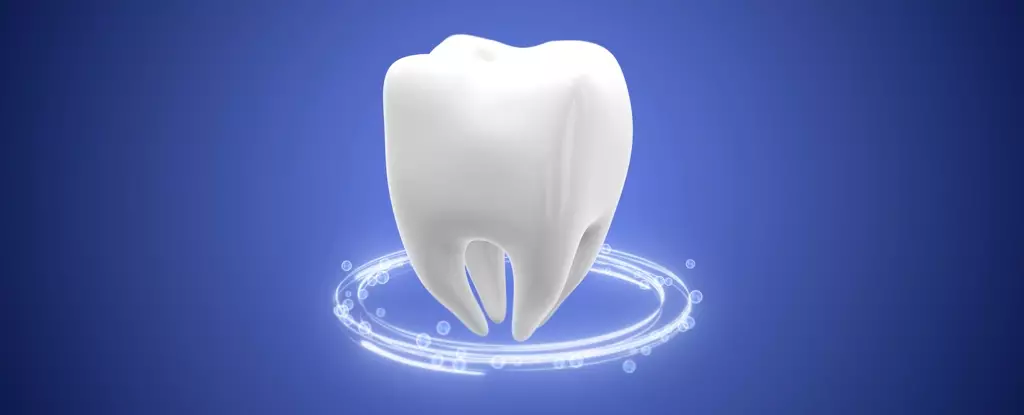The concept of creating teeth in a laboratory setting undoubtedly evokes images of unnerving sci-fi narratives where human meddling with nature leads to chaos. Yet, amid the eeriness, there lies a compelling new frontier in dental medicine. Recent groundbreaking research conducted by teams at King’s College London and Imperial College London brings us thrillingly closer to an era where lab-grown teeth could replace those ravaged by decay or trauma. The implication of this innovation is profound, but it also raises ethical dilemmas worthy of consideration.
The Science Behind Tooth Regeneration
At the heart of this burgeoning field is a novel hydrogel developed to facilitate enhanced communication between cells, ultimately promoting the growth of fresh tooth structures. Researchers utilize dental epithelial and mesenchymal cells extracted from mouse embryos to create a biochemical scaffold that supports natural tooth development. Xuechen Zhang, a PhD candidate in Regenerative Dentistry, boldly claims, “Lab-grown teeth would naturally regenerate, integrating into the jaw as real teeth.” Such a statement invites not only curiosity but skepticism: can we genuinely trust our ability to synthesize complex biological structures without unforeseen consequences?
This new material’s groundbreaking feature is its capacity to release signals gradually, mirroring the human body’s intricate healing processes. Unlike previous materials that bombarded cells with all the necessary signals at once, this hydrogel offers a more sophisticated approach to tooth regeneration, posing an intriguing question: are we finally mastering the art of biological orchestration?
A Double-Edged Sword: The Risks of Overreach
However, this exciting leap in dental technology is not without its risks. The more we attempt to replicate biological systems, the more we must confront the potential for missteps. The very act of manipulating the natural processes of dental regeneration brings up a plethora of unanswered questions regarding long-term effects, biocompatibility, and ethical considerations. What happens if we unleash a process that spirals beyond our control, possibly culminating in unmanageable tissue growth or unforeseen immune responses?
Therefore, while the promise of strong, biologically integrated teeth is tantalizing, the cautionary tales from bioengineering and genetic manipulation loom large. Can society ethically endorse procedures that could enhance our natural limitations? This is a debate that deserves rigorous exploration as we advance towards this new frontier.
Challenging Anodontia: Hope in Unexpected Places
Interestingly, the endeavor extends beyond mere aesthetic improvement. A focus on conditions like anodontia, a developmental disorder resulting in missing teeth, reveals the broader implications of this research. Efforts to devise antibody treatments capable of stimulating tooth growth may pave the way for addressing significant dental and health challenges faced by many individuals. However, this raises a perennial question in medical ethics: should we prioritize funding and research for conditions that are often perceived as cosmetic versus those that have significant ramifications on health and well-being?
The interconnection between oral health and overall physical well-being cannot be disregarded. As experts have pointed out, neglected dental issues frequently correlate with systemic health problems, further complicating this landscape of ethical considerations. The intricate web of causation between impaired dental health and other medical conditions emphasizes the significance of this research, pushing us to reevaluate not just the methods, but the very priorities of dental health systems.
The Future of Dental Health: A Paradigm Shift
As the landscape of dental care evolves with innovative techniques and solutions, society stands at a pivotal crossroads. The potential for lab-grown teeth to revolutionize dental health is astonishing, but navigating the ethical and practical implications of such advancements is paramount. The promise of biologically integrated dental solutions is enticing, yet clarity, responsibility, and comprehensive understanding must guide us forward. In this brave new world, we must ensure that progress does not come at the cost of mindfulness, foresight, and ethical consideration. This is an era ripe for reflection—a delicate balance between embracing innovation and safeguarding our humanity.


Leave a Reply